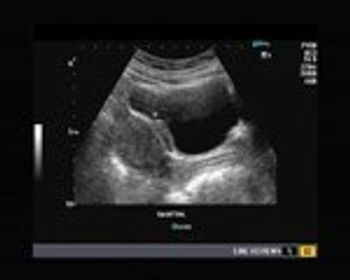
In women undergoing assisted reproductive techniques, intentional endometrial injury performed in the month prior to the embryo transfer cycle can increase the likelihood of clinical pregnancy and live birth, according to results of a new study.

In women undergoing assisted reproductive techniques, intentional endometrial injury performed in the month prior to the embryo transfer cycle can increase the likelihood of clinical pregnancy and live birth, according to results of a new study.

Laparoscopy has short-term advantages and seemingly equivalent long-term outcomes as compared with laparotomy for endometrial cancer according to a meta-analysis of randomized controlled trials.

Emerging information on the link between ovarian cancer and endometriosis gives us an unprecedented opportunity to develop comprehensive screening plans for early detection and prevention of specific types of ovarian cancer.

Our patient is a 30 year old female with a history of mild pain during micturition.

How often do patients develop endometriosis following laparoscopic supracervical hysterectomy with uterine morcellation? To better understand the resulting rates of endometriosis via laparoscopic versus transvaginal or abdominal hysterectomies, researchers conducted a single center case-control study.

Bipolar radiofrequency endometrial ablation is more effective than hydrothermablation in the treatment of menorrhagia at five years, according to research published in Obstetrics & Gynecology.

Laparoscopic staging of uterine cancer is associated with only a small increased risk of recurrence, according to a new study in the Journal of Clinical Oncology.

Endometriosis affects as many as 6% of the general population. While some women with endometriosis remain asymptomatic, many women experience dysmenorrhea, dyspareunia, non-cyclical pelvic pain, and subfertility. Now, new research indicates that patients with endometriosis are also more likely to develop inflammatory bowel disease.

Microlaparoscopy is a useful tool in diagnosing various causes of pelvic pain. In this tutorial, get the basics on conscious pain mapping in gynecological surgery.

OBGYN.net Conference CoverageFrom the ESHRE 2001 Conference - Lausanne, Switzerland

OBGYN.net Conference CoverageFrom the ESHRE 2001 Conference - Lausanne, Switzerland

Entry is most error-prone aspect of laparoscopy. In this tutorial, get the basics on how to improve your laparoscopic technique for a variety of gynecological surgeries.

In this tutorial, review the pros and cons of laparoscopy for diagnosis and treatment of endometriosis. Do the negatives of laparoscopy – anesthesia, for example – outweigh the ability to make definitive diagnosis based on visualization and treat in the same intervention?

Dr. Paul Indman demonstrates a new hysteroscope, meant to make the technology more available to and affordable for office-based gynecologists.

In November of 1996 (at the age of 25) I was diagnosed PCOS, and about 2 weeks later I started having very intense pelvic pain that I thought was due to a pulled muscle. The pain continued for several months, and after an examination and discussion with my family doctor, we believed it was ovarian cysts.

To evaluate and compare the safety and efficacy of leuprolide versus placebo in managing chronic pelvic pain in women with clinically suspected endometriosis.

SB is an 18-year-old G0 female who presented with a long-standing history of perimenstrual pelvic pain and diarrhea thought to be due to endometriosis. Her menses are irregular (1-3 month intervals).

DB is a 26-year-old nulligravid female with dysmenorrhoea and a long-standing history of endometriosis. Dysmenorrhoea began at age 16 years and has become progressively worse. She describes two unique pain profiles.

Endometriosis is a disease in which endometrial glands and stroma implant and grow in areas outside the uterus . The most common place to find implants is in the peritoneal cavity, but they can be found in any other place.

I am 28 years old and I've been actively trying to get pregnant for the past 2 years. I recently underwent a laparoscopy by my gynecologist. She told me that I had minimal endometriosis, but that my ovaries and tubes looked normal. She told me that endometriosis is associated with infertility, but I don't really understand the connection.

I am a 34 year old woman that would like to have another child. I recently had surgery to remove my gallbladder and in the process there were pictures taken. I was told that my ovary is covered, all except one small area, by what looks like adhesions.

This question is in reference to a 36 year old woman that needs to know if there is any other way to concieve once the tubes have been clipped and burned?

It's 2:00 a.m. on a Friday. Your doctor is home in bed, where the rest of the world should be. But not you...you're online wondering whether this stomachache you have is life threatening or just a bad reaction to the steak you had at dinner. So where do you go? Do you rush to the hospital to wait 3 hrs. in the ER to be told to "go home and call your doctor," for the "small fee" of $1000 or so?

Endometriosis is a condition in which the lining of the uterine cavity (endometrium) grows outside of the uterus. Endometriosis can be found anywhere in the pelvic cavity, including all the reproductive organs as well as on the bladder, small bowel, colon, rectum, appendix, and vagina. However, endometriosis cannot be considered simply as misplaced endometrium, because it differs in hormonal responses and visual appearance.

The real cause of endometriosis remains unknown. The following theories represent current thinking of the etiology of endometriosis, but none of them can explains all cases of endometriosis. We do know, however, that endometriosis is not caused by anything that the patient has done.